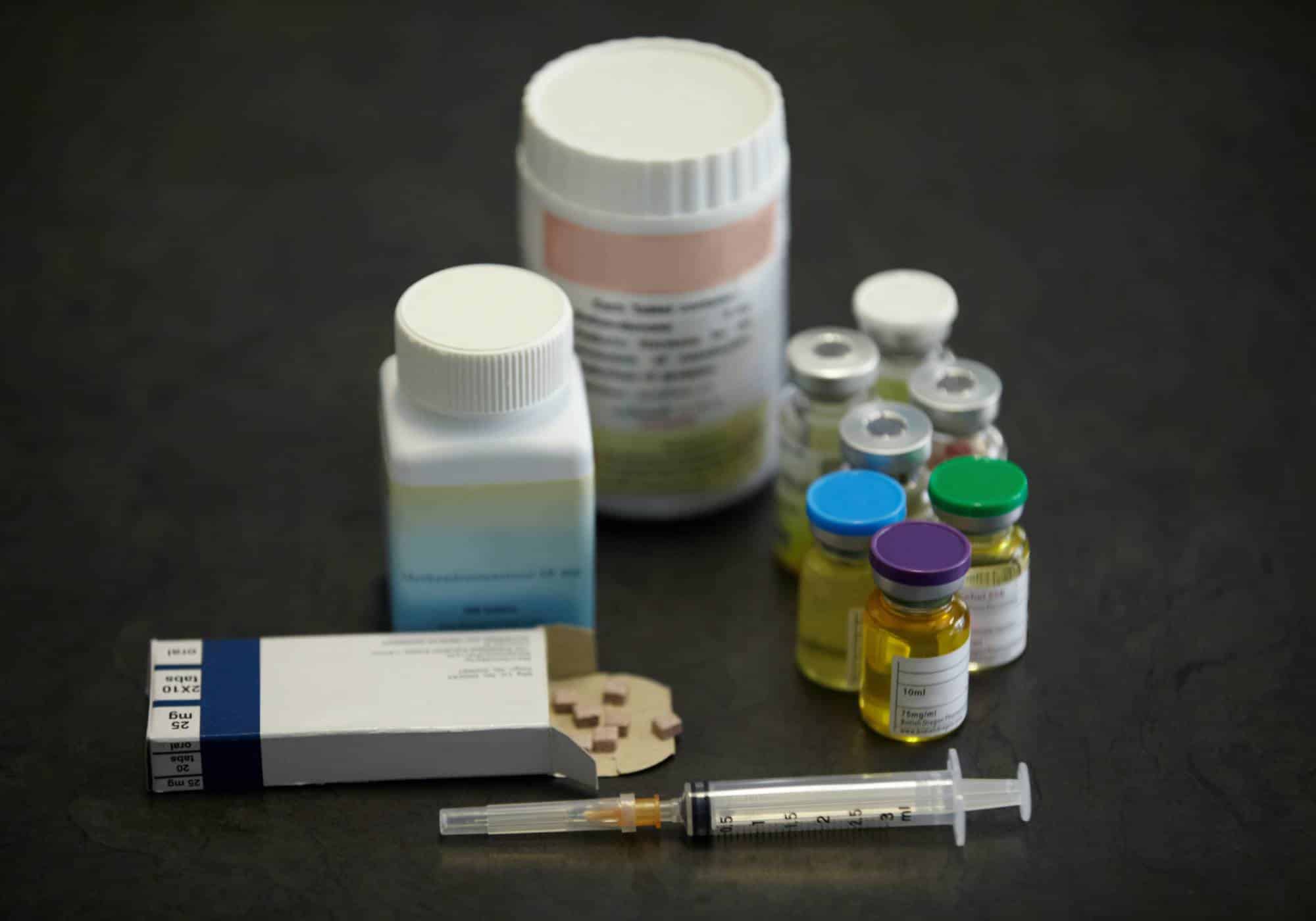Hydrocodone, a potent opioid pain reliever, works by binding to opioid receptors in the brain, altering pain perception. Known generically as hydrocodone, it’s available under brand names such as Vicodin, Norco, and Lortab, which combine hydrocodone with acetaminophen.
Hydrocodone Addiction can start from abuse of a prescribed opioid. Signs of abuse include lethargy, constricted pupils, and a noticeable flush in the skin.
What is Hydrocodone?
Hydrocodone, a generic opioid, is found in several prescription medications like Norco, Lortab, and Vicodin. This powerful narcotic is primarily used to manage moderate to severe pain and also serves as a cough suppressant. Though these brands are no longer available in the U.S. market, the drug is still widely prescribed.
Abuse of hydrocodone can lead to various signs and symptoms noticeable by both the user and observers. Common physical, psychological, and behavioral indicators of hydrocodone addiction include:
- Slowed heart rate
- Anxiety
- Respiratory difficulty
- Depression
- Fearfulness
- Coma and seizures during overdose situations
- Insomnia and muscle aches during withdrawal
- Frequent doctor visits to obtain more prescriptions
- Referring to pills by street names such as hydros, vics, or vico
Given its strong potential for addiction, hydrocodone use must be closely monitored by healthcare providers.
Side Effects of Hydrocodone
Hydrocodone, a commonly prescribed opioid medication, has several potential side effects, even when used according to a healthcare provider’s instructions.
These side effects from hydrocodone can vary in severity and may include:
- Constipation
- Nausea
- Vomiting
- Drowsiness
- Itchiness
- Headaches
- Dizziness
- Abdominal pain
It’s important for users to monitor these reactions carefully and consult their healthcare provider if they experience significant discomfort or if the side effects persist.
Is Hydrocodone Addictive?
“Is hydrocodone addictive?” is a frequent query concerning this medication. Hydrocodone is an opioid that is highly addictive and carries a significant risk for abuse and dependency. When individuals cease using hydrocodone after developing a dependence, they often endure withdrawal symptoms. This leads to the question, “What makes hydrocodone addictive?” The drug’s ability to induce calming, antidepressive, and euphoric effects can lead to its misuse. Even when prescribed legitimately by a physician for medical reasons, there’s a notable risk of becoming dependent on hydrocodone.
The U.S. Drug Enforcement Administration (DEA) categorizes hydrocodone as a Schedule II controlled substance, indicating it has recognized medical uses but also a high potential for abuse and dependency. The classification into one of five drug schedules is based on the substance’s medical utility versus its abuse potential.
What is Hydrocodone Addiction?
Hydrocodone addiction involves the abuse of a prescription opioid painkiller often prescribed to manage moderate to severe pain. Unlike natural opiates like morphine and codeine, hydrocodone is a semi-synthetic opioid. It’s commonly prescribed under the brand name Vicodin to address short-term pain, such as that experienced post-dental surgery or from injuries. Due to its opioid nature, hydrocodone carries a high risk of addiction. Regular usage can lead to physical dependence, where the body requires the drug to function normally. Stopping hydrocodone can trigger withdrawal symptoms, making it essential for individuals to seek professional detox and rehabilitation to effectively manage and overcome addiction. Continue reading to understand the signs and symptoms of hydrocodone addiction.
How Long Does It Take To Get Addicted to Hydrocodone?
The duration it takes for an individual to become addicted to hydrocodone varies widely. Addiction is characterized by the persistent use of the drug despite experiencing adverse consequences that affect personal well-being, such as disruptions in sleep or relationship issues. For some, addiction develops quickly, while others may take longer to exhibit dependency behaviors.
Several factors can accelerate the likelihood of developing a hydrocodone addiction. These include a personal or family history of substance abuse, usage patterns—whether it’s prescribed or used recreationally—and concurrent use with other substances like alcohol.
Particularly high-risk behaviors, such as crushing and snorting hydrocodone to intensify its effects, significantly increase the likelihood of addiction. This method delivers the drug more rapidly to the brain, enhancing both its effects and addictive potential.

Signs and Symptoms of Hydrocodone Addiction
If you suspect someone may be struggling with hydrocodone addiction, there are various signs and symptoms to watch for:
Physical signs:
- Unusually euphoric mood
- Excessive drowsiness or lethargy
- Diminished stress perception
- Numbness
Behavioral signs:
- Noticeable shifts in mood or personality
- Altered appetite or sleep habits
- Difficulty with focus or decision-making
- Experiencing withdrawal symptoms when not using hydrocodone
Negative effects:
- Anxiety
- Dizziness
- Fatigue
- Constipation
- Headaches
- Nausea
- Sleep disturbances
- Nightmares
- Muscle weakness
- Itchiness
Severe effects can include:
- Bowel obstruction
- Respiratory difficulties
- Abnormal heartbeat
- Urination issues
- Persistent vomiting
Withdrawal symptoms suggesting hydrocodone misuse include:
- Chills and shivering
- Increased anxiety
- Insomnia
- Diarrhea
- Hallucinations
- Body aches
- Sweating
- Vomiting
- Irregular heart rate
- Depression
These symptoms collectively point toward potential misuse of hydrocodone, indicating a need for medical assessment and possible intervention.
Why is Hydrocodone so Addictive?
Hydrocodone is highly addictive primarily because it activates the mu opioid receptors in the central nervous system, stimulating the brain’s reward system. This activation not only alleviates pain but also significantly increases the release of dopamine, a neurotransmitter associated with pleasure. The surge of dopamine creates euphoric feelings, particularly at higher doses, which can make the experience of taking hydrocodone highly rewarding.
This rewarding experience strongly motivates the brain to repeat the same action to achieve similar pleasurable effects, thereby fostering a compulsive desire to use hydrocodone again. Although initially, the decision to use hydrocodone might be voluntary, the drug’s effects on the brain can quickly lead to an addiction, characterized by uncontrollable cravings and a persistent obsession with obtaining and using the drug.
Signs of hydrocodone addiction may include a preoccupation with securing more of the drug, losing interest in activities once enjoyed, and continuing usage despite negative consequences. This pattern can develop even in those who initially start taking hydrocodone as prescribed.
Risks of Hydrocodone Misuse
Misusing hydrocodone poses significant risks, even though it differs from addiction. Misuse involves using the medication in ways not prescribed—this could mean taking someone else’s medication, consuming higher or more frequent doses, or altering the form of the medication, such as by crushing or snorting it.
Such misuse of hydrocodone can lead to serious, even life-threatening issues, including:
- Tolerance: This develops when increasingly larger doses are required to achieve the same effects, which can quickly escalate use.
- Dependence: Regular misuse can lead to physical dependence, with withdrawal symptoms appearing if the drug is suddenly decreased or stopped.
- Overdose: The risk of overdose increases under misuse, particularly if hydrocodone is combined with substances like alcohol, benzodiazepines, or other opioids, or if the drug is contaminated with other potent agents. Overdoses can be accidental or intentional but are always dangerous.
Understanding these risks is crucial for anyone prescribed hydrocodone to avoid potential health complications associated with its misuse.
Signs of a Hydrocodone Overdose
An overdose on hydrocodone can manifest through various severe symptoms, which require immediate medical intervention.
Recognizable signs of a hydrocodone overdose include:
- Extremely constricted pupils, often described as pinpoint-sized
- Nausea and vomiting
- Spasms in the stomach or intestines
- Severe constipation
- Profound drowsiness or falling into a coma
- Seizures
- A weak pulse and low blood pressure
- Shallow or labored breathing, potentially escalating to a complete cessation of breath
- Cyanosis, where fingernails and lips turn blue due to insufficient oxygen
In cases of suspected hydrocodone overdose, it’s crucial to seek emergency medical assistance promptly. Naloxone (Narcan) may be administered to counteract the life-threatening effects of opioid overdose. While naloxone is effective in temporarily reversing the overdose effects, it is not a substitute for comprehensive medical treatment, and further care is necessary.
Hydrocodone Withdrawal Symptoms
Experiencing withdrawal from hydrocodone, a potent opioid, can be significantly uncomfortable and potentially hazardous. These symptoms usually manifest when a dependent individual discontinues or drastically reduces their dosage.
Common hydrocodone withdrawal symptoms include:
- Nausea and vomiting
- Insomnia
- Shivering
- Irritability
- Profuse sweating
- Watery eyes and a runny nose
- Anxiety
- Body aches
- Stomach pain and diarrhea
- Elevated blood pressure
- Rapid heart rate
The intensity of these symptoms can vary based on individual factors such as duration of use and physical health. Medical assistance is crucial to safely manage withdrawal symptoms.
Hydrocodone Withdrawal Timeline
The withdrawal timeline from hydrocodone can differ based on several personal factors:
- Age: Younger individuals typically process withdrawal quicker than older adults.
- Height and Body Composition: Taller and individuals with more body fat may experience prolonged withdrawal.
- Genetic Predispositions: Sensitivity to withdrawal symptoms can vary.
- Health Conditions: Underlying kidney or liver issues can extend the duration of withdrawal.
- Metabolism: A faster metabolism can shorten the withdrawal period.
- Usage Frequency and Dosage: Higher frequencies and doses of hydrocodone use extend the withdrawal timeline.
Typically, the most intense physical symptoms peak within the first five days, characterized by sweating, vomiting, and diarrhea. Psychological symptoms such as anxiety, mood swings, and depression can persist for a month or more after the physical symptoms have subsided. It’s important to seek professional guidance for a managed and safer withdrawal process.

Hydrocodone Addiction Treatment
At Hope Harbor Wellness, we understand the significant challenges posed by hydrocodone addiction and its potential to disrupt your mental and physical well-being. Developing a tolerance often necessitates increased dosages to achieve the same relief, which can spiral into a broader dependency involving other substances or compulsive behaviors like gambling.
You don’t have to navigate this path alone. Our dedicated team offers comprehensive support and customized outpatient treatment programs designed specifically for overcoming hydrocodone addiction. These programs aim to empower you to take back control of your life and foster a fulfilling future.
It’s never too late to start your recovery journey. Contact Hope Harbor Wellness at 678-672-6731 or through our contact form to take the first step towards a renewed life free from hydrocodone addiction in Atlanta, GA.
Benefits of Hydrocodone Addiction Treatment
Professional treatment for hydrocodone addiction can significantly improve your quality of life by offering a pathway to sobriety and the opportunity to reconnect with the people and passions you love. While it is possible to achieve sobriety independently, it tends to be challenging and less effective without the structure of a professional treatment program.
Here are the essential benefits of professional hydrocodone addiction treatment:
- Continuous Support: Treatment centers provide a strong network of support and essential tools for your recovery. Experts will help you develop personalized strategies to handle cravings and triggers, while peer support in group therapy offers encouragement and solidarity, aiding in long-term sobriety.
- Evidence-based Treatment: Professional facilities utilize proven treatments that surpass attempts to recover alone. Those who try to quit on their own often lack the crucial information and tools needed to tackle the root causes of their addiction.
- Co-occurring Treatment: Many programs offer dual diagnosis treatment that addresses both your addiction and any underlying mental health conditions. This holistic approach is vital because many substance use issues originate from untreated mental health problems, and managing both can greatly reduce the risk of relapse.
- Access to Resources: Entering a treatment program grants you access to a wealth of resources, including therapies that help you identify and cope with triggers, and educational materials to enhance your understanding of addiction and its effects. These resources are crucial for restoring relationships and other life areas impacted by addiction.
- Improved Health: Professional treatment significantly benefits your physical and mental health, reversing the effects of substance use. These health improvements are a fundamental support in your recovery journey, allowing you to regain and relish your life fully.
Engaging in professional treatment can transform your life, setting you on a robust path to recovery and enhancing every aspect of your well-being.
Treatment for Hydrocodone Addiction in Atlanta, GA
If you or someone you care about is seeking recovery from hydrocodone addiction in Atlanta, GA, Hope Harbor Wellness offers a supportive and serene environment that is perfect for healing. Located in the quiet suburbs of Atlanta, our center is equipped to provide you with the essential tools and setting needed for successful recovery.
At Hope Harbor Wellness, our comprehensive hydrocodone addiction treatment includes:
- Family Therapy
- Alumni Program
- Group Therapy
- Individual Therapy
- Outpatient Treatment
- Intensive Outpatient Program (IOP)
- Partial Hospitalization Program (PHP)
Our treatment approach is holistic, incorporating nutritional counseling, meditation, and creative therapies such as art and music, all designed to foster strength, motivation, confidence, and overall wellness. You will gain a deep understanding of the nature of your addiction, learn to recognize triggers, and develop coping strategies to maintain long-term recovery.
For more information about our substance abuse programs or to take a significant step toward a healthier life, contact Hope Harbor Wellness at 678-672-6731 or fill out our contact form today.












